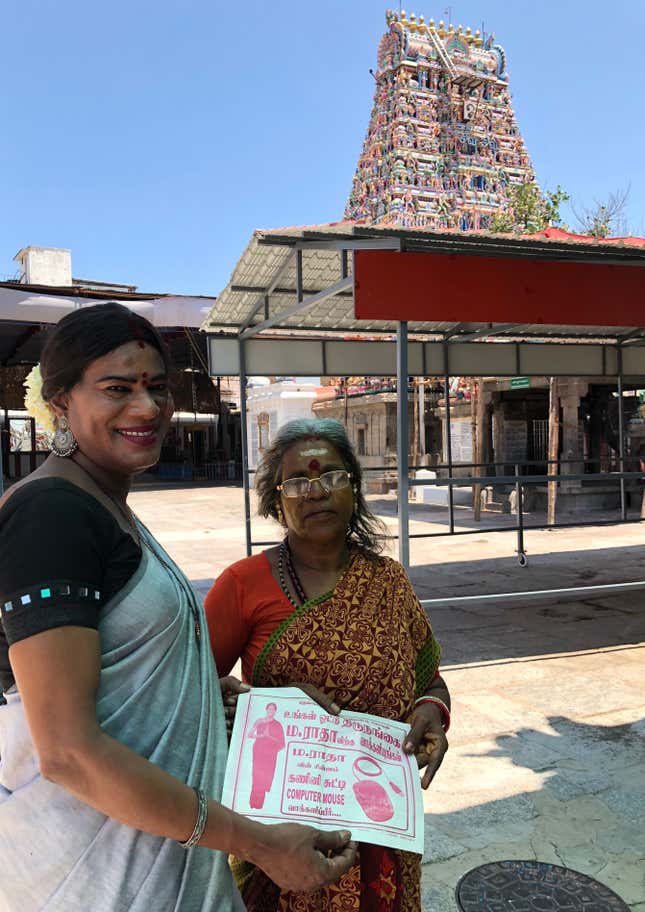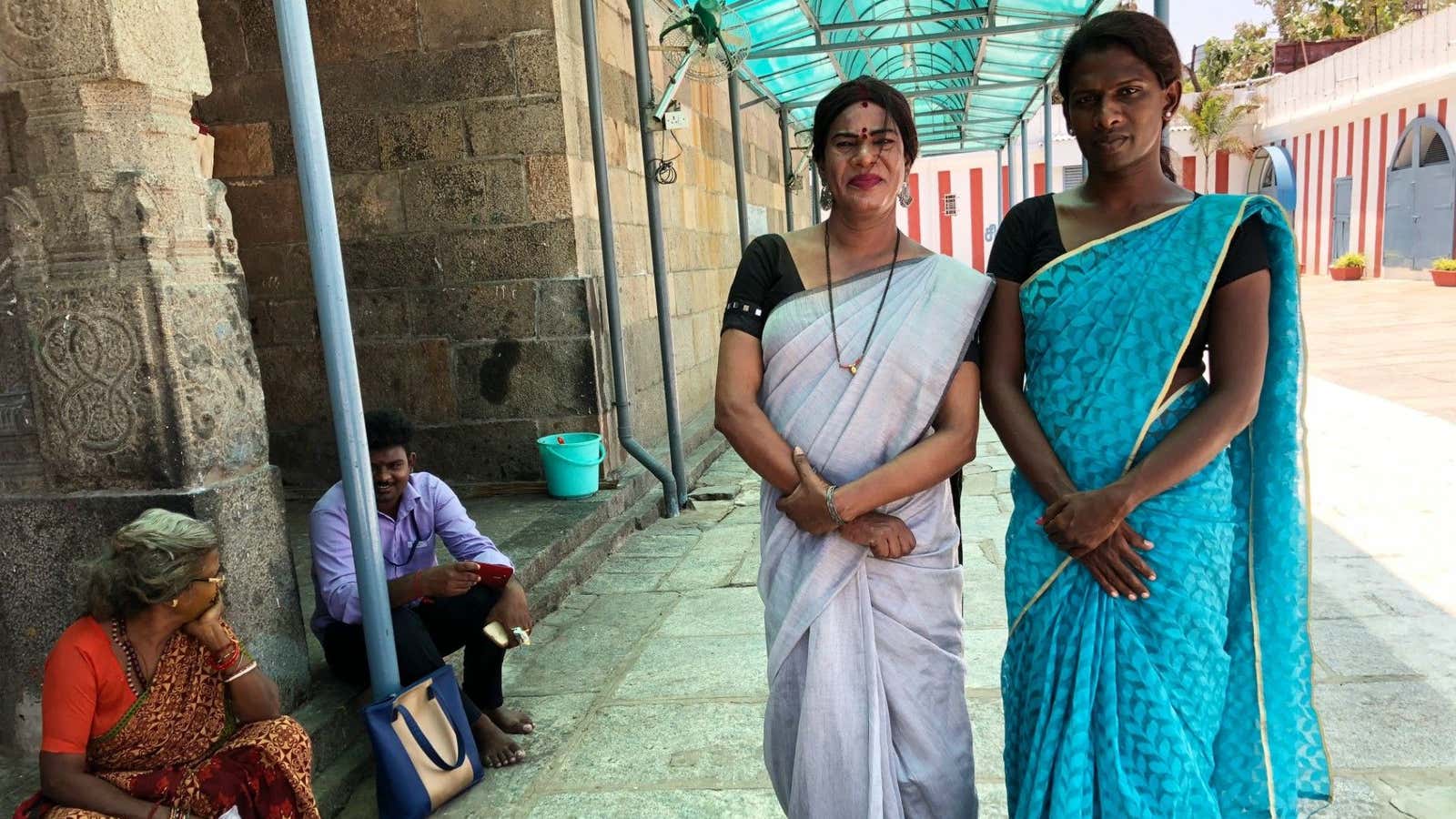On April 16, the last day of campaigning before Tamil Nadu voted on April 18, one of the candidates spent the morning in the capital city Chennai’s famous Kapaleeshwarar temple, greeting devotees and distributing her fliers.

M Radha, a Hindu, said she likes to spend time in all kinds of places of worship—Muslim, Hindu, Christian—and feels welcome in most. It’s not a given, though. As a transgender woman, she is used to all sorts of discrimination.
She was shunned even by her family, with whom she has not spoken to in 20 years since coming out to them at the age of 18. Still, she says, she was lucky to find a community of transgender women who supported her, giving her a chance to study and get a postgraduate degree in literature.
Because of that, she didn’t have to resort to begging or sex work to get by, and, at 38, she is the first transgender person to run for office in the southern Indian state.
If she feels empowered to stand for election, says Radha, it’s because of something that happened in 2008: Her gender got a name.
Until then, people used terms such as “ussu,“”pottai” (“impotent man”), “oothu“—all derogatory—for transgender persons. Things changed that year with the arrival of M Karunanidhi as Tamil Nadu chief minister. He established the country’s first transgender person welfare board and later provided third gender people an identity card.
Karunanidhi didn’t just call transgender people “aravani,” their traditional name, but addressed them as “thirunangai,” a respectful term that can be translated as “mister lady.”
“I am thirunangai,” Radha says, explaining what makes her unique as a candidate. “We have a man’s braveness and a woman’s kindness,” she says, promising that she would use both the qualities during her tenure if elected. She is focused on local problems: drinking water and access to higher education.
Gender issues are on her mind, too. She wants to focus on the safety of women and transgender people, ensuring they get access to equal education and are not discriminated against, as it happened to her.
According to the latest census, there are half-a-million transgender people living in India, though only about 38,000 are registered as third gender voters.
Nila, an advisor of Radha’s and a transgender NGO worker, agrees that the official recognition in the label thirunangai was important not just to educate and change people outside the transgender community, but even inside. A majority of the transgender people in her community prefer being referred to as “third gender,” she says, and being referred to as thirunangai empowered them to take pride in that.
The introduction of the new word also helped tremendously in improving acceptance, and though some people remain prejudiced against transgender people, most aren’t. “80% people are good, 20% are still ignorant,” says Radha.
Indeed, observing her interactions in the temple—with men, women, and children of all genders—Radha does look welcome and is treated with the due respect. Most of the people stop her to ask her about her campaign, and she tells them about her symbol, assigned to her through a draw.
“Computer mouse! Computer mouse,” she repeats, asking for votes. Sometimes, the people talking to her are elderly, and they look somewhat confused—so she has to explain to them, often with vivid gestures, what a computer mouse is, what it looks like.
Meera Maria contributed to this report.
Read Quartz’s coverage of the 2019 Indian general election here.
